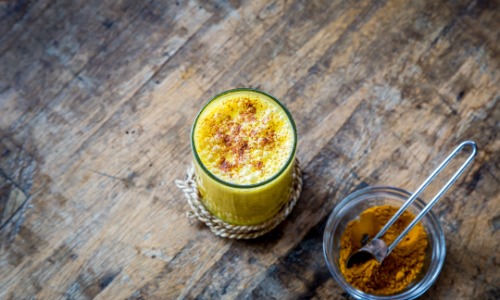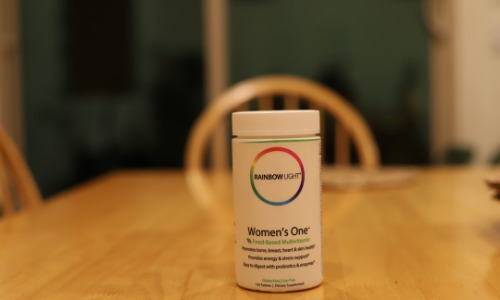The Comprehensive Health Benefits of Curcumin: Nature’s Powerful Anti-Inflammatory
Introduction
Curcumin, the active compound found in turmeric (Curcuma longa), is renowned for its potent anti-inflammatory and antioxidant properties. Traditionally used in Ayurvedic and Chinese medicine, curcumin has gained significant attention in modern science for its potential to prevent and treat various health conditions. This article explores the extensive benefits of curcumin and why incorporating it into your diet can enhance your overall health and well-being.
1. Potent Anti-Inflammatory Properties
Curcumin is one of the most effective natural anti-inflammatory compounds. Chronic inflammation is a root cause of many diseases, and curcumin’s ability to combat inflammation offers several health benefits:
- Reducing Chronic Inflammation: Curcumin inhibits molecules that play a major role in inflammation, such as NF-kB and cytokines, helping to reduce chronic inflammation throughout the body.
- Alleviating Arthritis Symptoms: Curcumin’s anti-inflammatory effects can help reduce pain and swelling in conditions like rheumatoid arthritis and osteoarthritis.
2. Powerful Antioxidant
Curcumin is a strong antioxidant that neutralizes free radicals and stimulates the body’s own antioxidant enzymes. Benefits include:
- Preventing Oxidative Stress: By scavenging free radicals, curcumin protects cells from damage, reducing the risk of chronic diseases like cancer and heart disease.
- Supporting Cellular Health: Curcumin helps maintain cellular integrity and function by protecting DNA and other cellular structures from oxidative damage.
3. Enhances Brain Health
Curcumin has shown promise in supporting cognitive function and protecting against neurodegenerative diseases. Key benefits include:
- Boosting Brain-Derived Neurotrophic Factor (BDNF): Curcumin increases levels of BDNF, a growth hormone essential for brain function, potentially improving memory and reducing the risk of brain diseases.
- Reducing Risk of Alzheimer’s Disease: Curcumin can cross the blood-brain barrier and may help clear amyloid plaques, a hallmark of Alzheimer’s disease.
4. Supports Heart Health
Curcumin contributes to cardiovascular health through several mechanisms. Benefits include:
- Improving Endothelial Function: Curcumin enhances the function of the endothelium, the lining of blood vessels, promoting better blood flow and reducing the risk of heart disease.
- Reducing Risk Factors: Curcumin helps reduce inflammation and oxidative stress, lowers cholesterol levels, and prevents blood clots, all of which contribute to a healthier heart.
5. Anti-Cancer Properties
Curcumin has been extensively studied for its potential to prevent and treat cancer. It affects cancer growth and development in several ways:
- Inhibiting Cancer Cell Growth: Curcumin can prevent the growth and spread of various types of cancer cells by interfering with cell signaling pathways.
- Inducing Apoptosis: Curcumin can induce apoptosis, or programmed cell death, in cancer cells, helping to eliminate them from the body.
- Preventing Angiogenesis: Curcumin inhibits the formation of new blood vessels that supply tumors, thereby restricting their growth.
6. Supports Digestive Health
Curcumin can aid in maintaining a healthy digestive system. Benefits include:
- Relieving Digestive Disorders: Curcumin’s anti-inflammatory and antioxidant properties can help manage conditions like inflammatory bowel disease (IBD), irritable bowel syndrome (IBS), and gastritis.
- Promoting Liver Health: Curcumin supports liver function by enhancing detoxification processes and protecting against liver damage.
7. Promotes Joint and Muscle Health
Curcumin is beneficial for maintaining healthy joints and muscles, especially for active individuals and those with joint conditions. Key benefits include:
- Reducing Muscle Soreness: Curcumin’s anti-inflammatory properties can help reduce muscle soreness and improve recovery after intense physical activity.
- Alleviating Joint Pain: Regular intake of curcumin can help reduce joint pain and stiffness, improving mobility and quality of life.
Conclusion
Curcumin offers a wide range of health benefits, from its potent anti-inflammatory and antioxidant properties to its potential to improve brain health, support heart function, and combat cancer. Incorporating curcumin into your diet can significantly enhance your overall health and well-being.
How to Increase Curcumin Intake
To maximize the benefits of curcumin, consider the following tips:
- Add Turmeric to Your Diet: Incorporate turmeric into your meals by adding it to curries, soups, smoothies, and teas. Combining turmeric with black pepper enhances curcumin absorption.
- Take Curcumin Supplements: If dietary intake is insufficient, consider taking curcumin supplements. Look for supplements that contain piperine (black pepper extract) or are formulated for enhanced bioavailability.
- Maintain a Balanced Diet: Ensure a balanced diet rich in fruits, vegetables, lean proteins, and whole grains to support overall health and maximize the effects of curcumin.
By prioritizing curcumin in your diet and lifestyle, you can support your overall health and well-being, ensuring a healthier, happier life.









